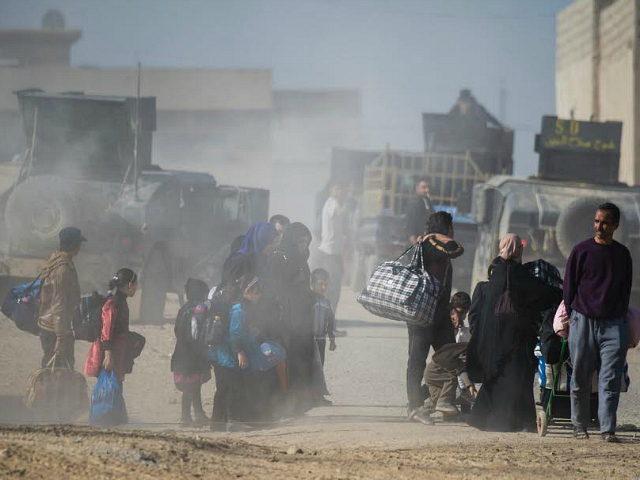On Tuesday, Reuters published an interesting set of interviews with captured Islamic State militants in Kurdish custody. They talked about the appeal of the Islamic State and illuminated the difficulty of putting ISIS-dominated cities like Mosul back together again.
“They described how Islamic State transformed them from ordinary Mosul citizens into jihadists through promises and threats and said unjust treatment of their Sunni community by the Shi’ite-led government and armed forces played a major role,” Reuters summarized.
One of the militants, a soft-spoken 20-year-old named Ismail, said he and his fellows “loved” the Islamic State caliphate, which ISIS leader Abu Bakr al-Baghdadi declared in Mosul two years ago because “they relieved us of the oppression of the Shiites.”
This mirrors comments from Mosul collected by the UK Guardian over the summer, such as a college student who said, “ISIS with all its brutality is more honest and merciful than the Shia government in Baghdad and its militias.”
A National Geographic look at Mosul in October quoted residents who remembered clapping and tossing sweets at ISIS trucks when they rolled through the city as conquerors:
For years the national government in Baghdad had neglected Mosul, as it had so much of Iraq. Services were inadequate. The economy was dormant. And for years—since the U.S.-led occupation began—men in the city, particularly Sunni Muslims, had been abused by security forces. They were routinely accused of being insurgents for no reason. Her brother and her cousins were jailed and beaten. Some men never returned. This was true of all the Sunni families she knew. “Many men were taken.”
The decent soldiers and police they knew, meanwhile, felt no allegiance to the government. In the weeks before ISIS invaded, some of these men found letters tacked to their doors reading, “Quit the army or die.” Others received anonymous phone calls from someone who said, “Leave the police force, or you’ll be beheaded.” They quit, of course. Why risk their lives? Some fled, some hid, some joined ISIS, whose leaders said they were there to free the people from the government, from irreligion and dishonor. The people believed them.
A soldier from Mosul, quoted by National Geographic, said the Islamic State’s conquest of the city was not quite as sudden as most distant observers believe because there was already a “dissident underworld” in place — a mixture of “Islamists, nationalists, guns for hire, and young men with nothing better to do” — who were already talking about launching a coup against the Shiite government in Baghdad.
Others described brutal treatment at the hands of the Iraqi army, charges the government in Baghdad has denied. The captured militants said foreign fighters tended to be the most enthusiastic and determined converts to the Islamic State, while some of their Iraqi forces were little better than hired gangsters. Some recruits said they were pressed into service with economic pressure and threats against family members.
Along those lines, CNN reported allegations on Wednesday that ISIS is deliberately cutting off water supplies to neighborhoods as the Iraqi army advances into the city, because they want to “force people to retreat with them in order to use them as human shields,” according to a Mosul City Council official.
“There is a clear pattern that we have seen in many of the cities and towns ISIS has occupied: that they will use water, food, anything to coerce the population,” confirmed Lise Grande, a UN humanitarian coordinator in Iraq. Mosul households are now reportedly waiting for days to pull a few jugs of unclean water out of makeshift wells.
This could put a troubling spin on reports that the “spirit is broken” among ISIS militants in Mosul. Much would depend on which militants are breaking. Ismail, the prisoner interviewed by Reuters, told a harrowing tale of being caught in a hideout with other low-level recruits who contemplated suicide by grenade as Kurdish rockers rained down around them. The hardcore foreign recruits could be handling the stress very differently than local cannon fodder pressed into service after ISIS captured Mosul.
How those expendable recruits handle life after ISIS will be a serious concern. There will be many opportunities for sectarian strife to flare up and old grudges to be settled. Civilians will be traumatized by years under the Islamic State’s brutality. Displaced residents will be returning to war-torn neighborhoods.
Some ISIS sympathizers will surely remain, and those who loathed the Islamic State hold unpleasant memories of how quickly Iraqi forces were routed after the caliphate was declared and how the central government seemed to abandon the city. The Sunni-Shiite divide will remain and may well generate new horrors in the future.

COMMENTS
Please let us know if you're having issues with commenting.